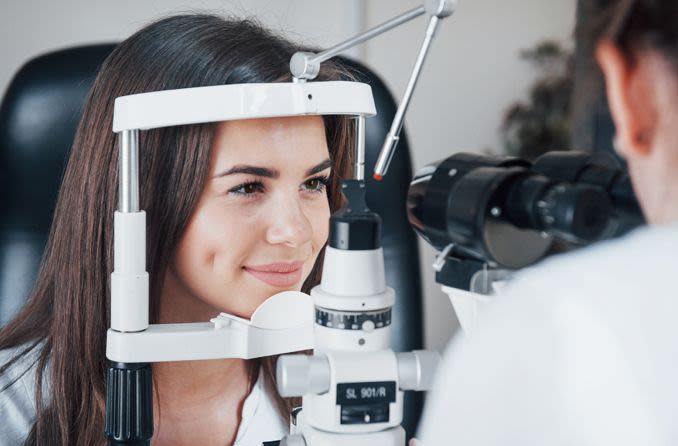All Categories
Featured
Table of Contents

Routine eye exams are crucial for preserving good vision and detecting possible eye health problems early. Nonetheless, the regularity of these tests can vary significantly based on a person's age, way of life, and overall wellness. Recognizing the advised timetable for eye examinations can help make certain that people of any ages obtain suitable care and monitoring for their eye health and wellness.
Infants and Toddlers (0-2 Years)
For babies and toddlers, eye examinations are important for spotting any possible vision problems early on. The American Academy of Ophthalmology recommends that a kid's very first eye examination must take place at around 6 months old. Throughout this preliminary visit, the eye care expert will evaluate the child's visual growth and look for any noticeable eye concerns.Following this first examination, it is advised that children have an additional eye examination at age three. This see will concentrate on assessing the child's overall aesthetic feature, consisting of eye placement and the capability to track items. If no issues are detected, the next test needs to be arranged prior to the kid starts institution, normally around age 5 or 6.
School-Aged Children (6-18 Years)
As soon as children reach school-age child, regular eye exams need to be scheduled each to 2 years. Vision is important for discovering and development, and lots of institutions perform vision screenings. These testings do not change an extensive eye examination by an eye treatment expert.For kids involved in tasks or sporting activities requiring substantial visual focus, annual eye tests may be a good idea. Furthermore, if a youngster exhibits indications of vision issues-- such as difficulty reading, squinting, or constant headaches-- a visit to the eye medical professional must be scheduled as soon as feasible.
Young Person (19-39 Years)
Young person commonly have fewer vision adjustments than older age, yet normal eye examinations remain essential. The general suggestion is to set up an eye test every 2 years throughout this duration. However, people with specific risk aspects-- such as a household background of eye condition, diabetes mellitus, or those that wear contact lenses-- need to consider annual eye tests.Furthermore, those that invest considerable time on digital gadgets may experience digital eye pressure. If symptoms such as dry skin, fatigue, or obscured vision happen, it might be important to see an eye treatment professional earlier.
Adults (40-64 Years)
As people go into midlife, the possibility of establishing vision troubles rises. Adults aged 40 to 64 should schedule eye tests each to 2 years. This age group might begin to experience presbyopia, a natural age-related condition that makes it challenging to concentrate on close things. Eye examinations can also help detect various other usual age-related conditions such as glaucoma, cataracts, and macular degeneration.If individuals in this age team have danger factors like high blood stress or diabetes, they might require even more constant exams to monitor their eye wellness carefully.
Seniors (65 Years and Older)
For seniors, regular eye exams end up being a lot more essential. The American Optometric Association suggests that individuals matured 65 and older have an eye test a minimum of as soon as a year. Older grownups are at a greater risk for various eye diseases, consisting of cataracts, glaucoma, and age-related macular deterioration. Early detection and therapy of these conditions can avoid vision loss and boost the high quality of life.Verdict.
Understanding the appropriate timetable for eye examinations based on age is important for preserving ideal eye health and wellness throughout life. By adhering to these standards and seeking advice from with an eye care professional, people can take aggressive actions toward preserving their vision and overall health.Table of Contents
Latest Posts
Choosing the Right Place: What to Consider for Wedding Events, Meetings, and Events
Published en
1 min read
Discover Relaxation at the Claridge Indoor Pool
Published en
1 min read
Ornamental Iron Fencing for Commercial Properties: Top Uses and Benefits
Published en
2 min read
More
Latest Posts
Choosing the Right Place: What to Consider for Wedding Events, Meetings, and Events
Published Mar 23, 25
1 min read
Discover Relaxation at the Claridge Indoor Pool
Published Feb 11, 25
1 min read
Ornamental Iron Fencing for Commercial Properties: Top Uses and Benefits
Published Feb 04, 25
2 min read